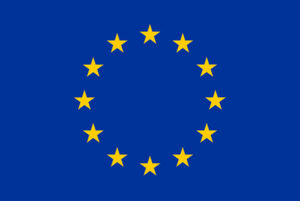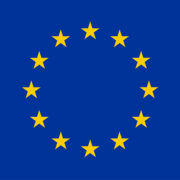The GDPR says you must reveal personal data breaches
 No organization likes to reveal that its network has been breached, or it data has been stolen by hackers or disclosed through human error. Yet under the European Union’s new General Data Protection Regulation (GDPR), breaches must be disclosed.
No organization likes to reveal that its network has been breached, or it data has been stolen by hackers or disclosed through human error. Yet under the European Union’s new General Data Protection Regulation (GDPR), breaches must be disclosed.
The GDPR is a broad set of regulations designed to protect citizens of the European Union. The rules apply to every organization and business that collects or stores information about people in Europe. It doesn’t matter if the company has offices in Europe: If data is collected about Europeans, the GDPR applies.
Traditionally, most organizations hide all information about security incidents, especially if data is compromised. That makes sense: If a business is seen to be careless with people’s data, its reputation can suffer, competitors can attack, and there can be lawsuits or government penalties.
We tend to hear about security incidents only if there’s a breach sufficiently massive that the company must disclose to regulators, or if there’s a leak to the media. Even then, the delay between the breach can take weeks or month — meaning that folks aren’t given enough time to engage identity theft protection companies, monitor their credit/debit payments, or even change their passwords.
Thanks to GDPR, organizations must now disclose all incidents where personal data may have been compromised – and make that disclosure quickly. Not only that, but the GDPR says that the disclosure must be to the general public, or at least to those people affected; the disclosure can’t be buried in a regulatory filing.
Important note: The GDPR says absolutely nothing about disclosing successful cyberattacks where personal data is not stolen or placed at risk. That includes distributed denial-of-service (DDoS) attacks, ransomware, theft of financial data, or espionage of intellectual property. That doesn’t mean that such cyberattacks can be kept secret, but in reality, good luck finding out about them, unless the company has other reasons to disclose. For example, after some big ransomware attacks earlier this year, some publicly traded companies revealed to investors that those attacks could materially affect their quarterly profits. This type of disclosure is mandated by financial regulation – not by the GDPR, which is focused on protecting individuals’ personal data.
The Clock Is Ticking
How long does the organization have to disclose the breach? Three days from when the breach was discovered. That’s pretty quick, though of course, sometimes breaches themselves can take weeks or months to be discovered, especially if the hackers are extremely skilled, or if human error was involved. (An example of human error: Storing unencrypted data in a public cloud without strong password protection. It’s been happening more and more often.)
Here’s what the GDPR says about such breaches — and the language is pretty clear. The first step is to disclose to authorities within three days:
A personal data breach may, if not addressed in an appropriate and timely manner, result in physical, material or non-material damage to natural persons such as loss of control over their personal data or limitation of their rights, discrimination, identity theft or fraud, financial loss, unauthorised reversal of pseudonymisation, damage to reputation, loss of confidentiality of personal data protected by professional secrecy or any other significant economic or social disadvantage to the natural person concerned. Therefore, as soon as the controller becomes aware that a personal data breach has occurred, the controller should notify the personal data breach to the supervisory authority without undue delay and, where feasible, not later than 72 hours after having become aware of it, unless the controller is able to demonstrate, in accordance with the accountability principle, that the personal data breach is unlikely to result in a risk to the rights and freedoms of natural persons. Where such notification cannot be achieved within 72 hours, the reasons for the delay should accompany the notification and information may be provided in phases without undue further delay.
The GDPR does not specify how quickly the organization must notify the individuals whose data was compromised, beyond “as soon as reasonably feasible”:
The controller should communicate to the data subject a personal data breach, without undue delay, where that personal data breach is likely to result in a high risk to the rights and freedoms of the natural person in order to allow him or her to take the necessary precautions. The communication should describe the nature of the personal data breach as well as recommendations for the natural person concerned to mitigate potential adverse effects. Such communications to data subjects should be made as soon as reasonably feasible and in close cooperation with the supervisory authority, respecting guidance provided by it or by other relevant authorities such as law-enforcement authorities. For example, the need to mitigate an immediate risk of damage would call for prompt communication with data subjects whereas the need to implement appropriate measures against continuing or similar personal data breaches may justify more time for communication.
The phrase “personal data breach” doesn’t only mean theft or accidental disclosure of a person’s private information. The GDPR defines the phrase as “a breach of security leading to the accidental or unlawful destruction, loss, alteration, unauthorised disclosure of, or access to, personal data transmitted, stored or otherwise processed.” So the loss of important data (think health records) would qualify as a personal data breach.
Big Fines and Penalties
What happens if an organization does not disclose? It can be fined up to 4% of annual global turnover. There’s a cap of €20 million of the fines.
These GDPR rules about breaches are good, and so are the penalties. Too many organizations prefer to hide this type of information, or dribble out disclosures as slowly and quietly as possible, to protect the company’s reputation and share prices. The new EU regulation recognizes that individuals have a vested interest in data that organizations collect or store about them – and need to be told if that data is stolen or compromised.



